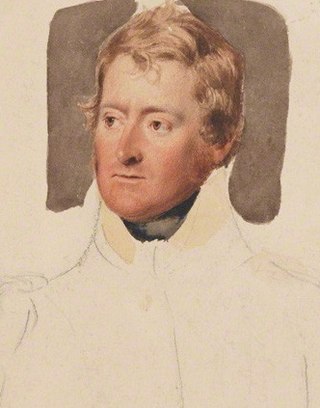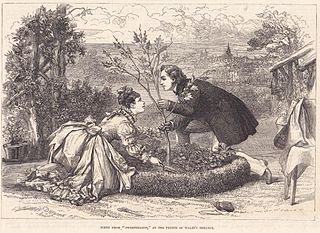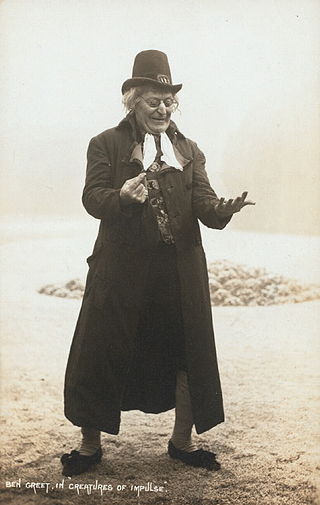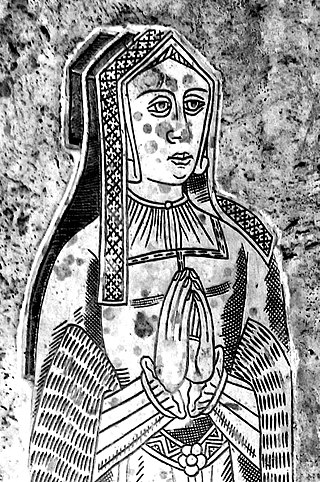This article relies largely or entirely on a single source .(August 2011) |

The Liars is an English play by Henry Arthur Jones that was first performed in London in 1897.
This article relies largely or entirely on a single source .(August 2011) |

The Liars is an English play by Henry Arthur Jones that was first performed in London in 1897.
Lady Jessica Nepean is fond of flirtation, not so much because she is dissatisfied with her husband, Gilbert, as because it flatters her vanity to keep other men dangling. At the houseparty of her sister, Lady Rosamund Tatton, her flirtation with Edward Falkner, a recently returned South African hero, is the theme of conversation. Everyone insists that Sir Christopher Deering (who had socially stood sponsor for Falkner) must reason him out of his infatuation for Lady Jessica before her husband realizes what she does. The women of the party also attempt to reason with Lady Jessica.
Both attempts, however, are foredoomed. Falkner is desperately in love with Lady Jessica. Lady Jessica is enjoying his ardor immensely, and still believes she can end it with a word. Business calls Gilbert Nepean away, so when the houseparty breaks up Lady Jessica keeps an appointment to have dinner with Falkner at the inn where he is staying. Her husband's brother, George, accidentally comes upon her there and, putting the worst possible construction on it, feels himself bound to wire Gilbert to return at once.
Lady Jessica happens to see Rosamund and Freddie rowing down the river, and manages to get her sister into the inn. In hopes to forestall George they write Gilbert a letter asking him to call at Lady Rosamund's town house the next morning for an explanation. About the time Gilbert is due, most of the other members of the houseparty turn up at Lady Rosamund's on some pretext or other. When Gilbert arrives, he is met with a most amazing barrage of lies. To complicate the situation, he has already seen a member of the houseparty on his way from the station, and by a chance remark of hers recognizes these subsequent explanations as lies. Finally when Lady Jessica sees that they are hopelessly involved, she bids Falkner tell the truth. By this time she imagines herself as much in love with him as he with her and is ready to run away with him.
Sir Christopher, however, is determined that his friend shall not sacrifice his brilliant career for a shallow woman. He manages to reconcile Lady Jessica and her husband by the simple process of blaming Gilbert for the whole affair. "In future," Sir Christopher advises, "flirt with your wife yourself if you don't want some other man to do it."
Although the play is a sophisticated comedy that shows Jones' contact with London high society, the play displays a rigid acceptance of the Victorian moral code. After gaining prominence in melodrama, Jones contributed this play and The Case of Rebellious Susan 1894 as a Victorian "society" drama. [1]

Mary Elizabeth Braddon was an English popular novelist of the Victorian era. She is best known for her 1862 sensation novel Lady Audley's Secret, which has also been dramatised and filmed several times.

Lady Audley's Secret is a sensation novel by Mary Elizabeth Braddon published in 1862. It was Braddon's most successful and well-known novel. Critic John Sutherland (1989) described the work as "the most sensationally successful of all the sensation novels". The plot centres on "accidental bigamy" which was in literary fashion in the early 1860s. The plot was summarised by literary critic Elaine Showalter (1982): "Braddon's bigamous heroine deserts her child, pushes husband number one down a well, thinks about poisoning husband number two and sets fire to a hotel in which her other male acquaintances are residing". Elements of the novel mirror themes of the real-life Constance Kent case of June 1860 which gripped the nation for years. A follow-up novel, Aurora Floyd, appeared in 1863. Braddon set the story in Ingatestone Hall, Essex, inspired by a visit there. There have been three silent film adaptations, one UK television version in 2000, and three minor stage adaptations.

The Merry Wives of Windsor or Sir John Falstaff and the Merry Wives of Windsor is a comedy by William Shakespeare first published in 1602, though believed to have been written in or before 1597. The Windsor of the play's title is a reference to the town of Windsor, also the location of Windsor Castle in Berkshire, England. Though nominally set in the reign of Henry IV or early in the reign of Henry V, the play makes no pretence to exist outside contemporary Elizabethan-era English middle-class life. It features the character Sir John Falstaff, the fat knight who had previously been featured in Henry IV, Part 1 and Part 2. It has been adapted for the opera at least ten times. The play is one of Shakespeare's lesser-regarded works among literary critics. Tradition has it that The Merry Wives of Windsor was written at the request of Queen Elizabeth I. After watching Henry IV Part I, she asked Shakespeare to write a play depicting Falstaff in love.

After the Funeral is a work of detective fiction by Agatha Christie and first published in the US by Dodd, Mead and Company in March 1953 under the title of Funerals are Fatal and in UK by the Collins Crime Club on 18 May of the same year under Christie's original title. The US edition retailed at $2.50 and the UK edition at ten shillings and sixpence (10/6).

Lady Charlotte Elizabeth Guest, later Lady Charlotte Schreiber, was an English aristocrat who is best known as the first publisher in modern print format of the Mabinogion, the earliest prose literature of Britain. Guest established the Mabinogion as a source literary text of Europe, claiming this recognition among literati in the context of contemporary passions for the chivalric romance of King Arthur and the Gothic movement. The name Guest used for the book was derived from a mediaeval copyist's error, already established in the 18th century by William Owen Pughe and the London Welsh societies.

Major General Hon. Sir Frederick Cavendish Ponsonby was an Anglo-Irish military officer.

Katherine Ashley, also known as Kat Ashley or Astley, was the first close friend, governess, and Lady of the Bedchamber to Queen Elizabeth I of England. She was the aunt of Katherine Champernowne, who was the mother of Sir Humphrey Gilbert from her first marriage and Walter Raleigh by her second marriage.
Edmée Elizabeth Monica Dashwood, née de la Pasture, commonly known as E. M. Delafield, was a prolific English author. She is best known for her largely autobiographical Diary of a Provincial Lady, which took the form of a journal of the life of an upper-middle class Englishwoman living mostly in a Devon village of the 1930s. In sequels, the Provincial Lady buys a flat in London, travels to America and attempts to find war-work during the Phoney War. Delafield's other works include an account of a visit to the Soviet Union, but this is not part of the Provincial Lady series, despite being reprinted with the title The Provincial Lady in Russia.

Godstow is about 2.5 miles (4 km) northwest of the centre of Oxford. It lies on the banks of the River Thames between the villages of Wolvercote to the east and Wytham to the west. The ruins of Godstow Abbey, also known as Godstow Nunnery, are here. A bridge spans the Thames and the Trout Inn is at the foot of the bridge across the river from the abbey ruins. There is also a weir and Godstow lock.

Ivanhoe is a romantic opera in three acts based on the 1819 novel by Sir Walter Scott, with music by Sir Arthur Sullivan and a libretto by Julian Sturgis. It premiered at the Royal English Opera House on 31 January 1891 for a consecutive run of 155 performances, a record for a grand opera. Later that year it was performed six more times, making a total of 161 performances. It was toured by Carl Rosa Opera Company in 1894–1895 but has rarely been performed since. The first complete, fully professional recording was released in 2010 on the Chandos Records label.

Julia Emilie Neilson was an English actress best known for her numerous performances as Lady Blakeney in The Scarlet Pimpernel, for her roles in many tragedies and historical romances, and for her portrayal of Rosalind in a long-running production of As You Like It.

Kenilworth, A Masque of the Days of Queen Elizabeth, is a cantata with music by Arthur Sullivan and words by Henry Fothergill Chorley that premiered at the Birmingham Festival on 8 September 1864.

Ages Ago, sometimes stylised as Ages Ago! or Ages Ago!!, is a musical entertainment with a libretto by W. S. Gilbert and music by Frederic Clay that premiered on 22 November 1869 at the Royal Gallery of Illustration. It marked the beginning of a seven-year collaboration between Gilbert and Clay. The piece was a critical and popular success and was revived many times, including at St. George's Hall, London in 1870 and 1874, and in New York in 1880.
The Ball is a Caroline comedy by James Shirley, first performed in 1632 and first published in 1639.

Sweethearts is a comic play billed as a "dramatic contrast" in two acts by W. S. Gilbert. The play tells a sentimental and ironic story of the differing recollections of a man and a woman about their last meeting together before being separated and reunited after 30 years.

Creatures of Impulse is a stage play by the English dramatist W. S. Gilbert, with music by the composer-conductor Alberto Randegger, which Gilbert adapted from his own short story. Both the play and the short story concern an unwanted and ill-tempered old fairy who enchants people to behave in a manner opposite to their natures, with farcical results.

Honor Grenville, Viscountess Lisle was a Cornish lady whose domestic life from 1533 to 1540 during the reign of King Henry VIII is exceptionally well-recorded, due to the survival of the Lisle Papers in the National Archives, the state archives of the UK.

Marion Bessie Terry was an English actress. In a career spanning half a century, she played leading roles in more than 125 plays. Always in the shadow of her older and more famous sister Ellen, Terry nevertheless achieved considerable success in the plays of W. S. Gilbert, Oscar Wilde, Henry James and others.

Rosa Mulholland, Lady Gilbert was an Irish novelist, poet and playwright.

Viva Birkett was a British stage actress active on both sides of the Atlantic over the early decades of the twentieth century.